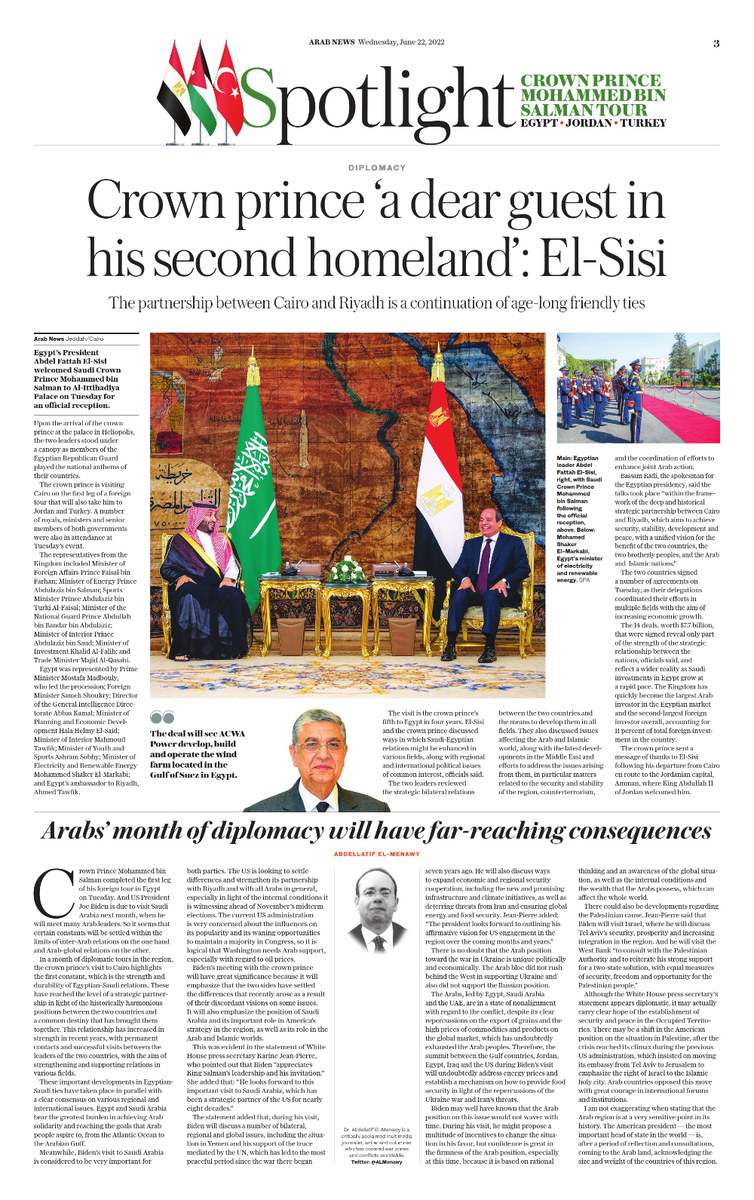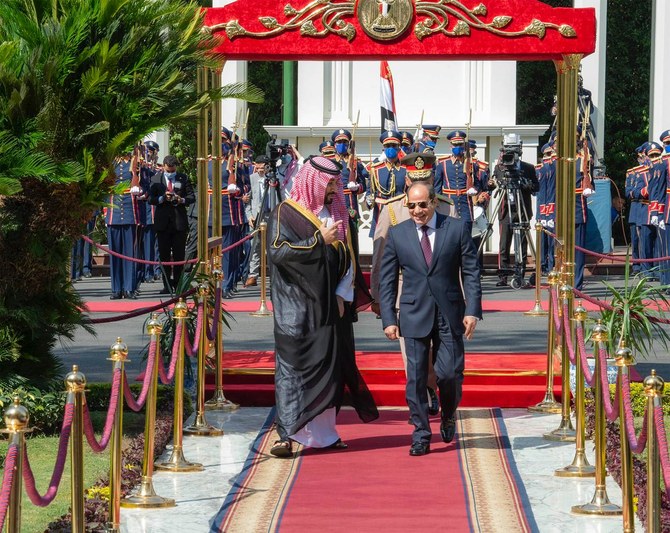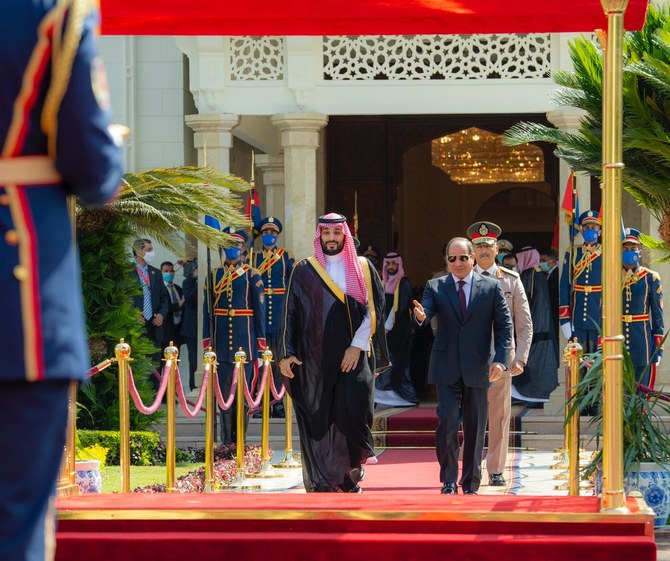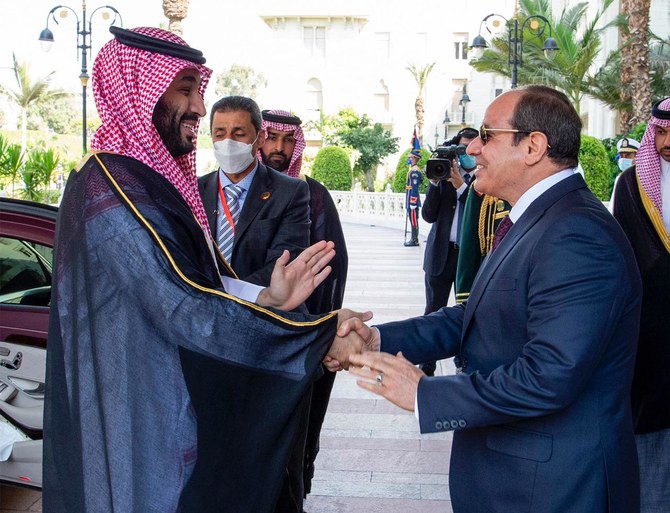JEDDAH/CAIRO: Egypt’s President Abdel Fattah El-Sisi welcomed Saudi Crown Prince Mohammed bin Salman to Al-Ittihadiya Palace on Tuesday for an official reception.
Upon the arrival of the crown prince at the palace in Heliopolis, the two leaders stood under a canopy as members of the Egyptian Republican Guard played the national anthems of their countries.
The crown prince is visiting Cairo on the first leg of a foreign tour that will also take him to Jordan and Turkey. A number of royals, ministers and senior members of both governments were also in attendance at Tuesday’s event.
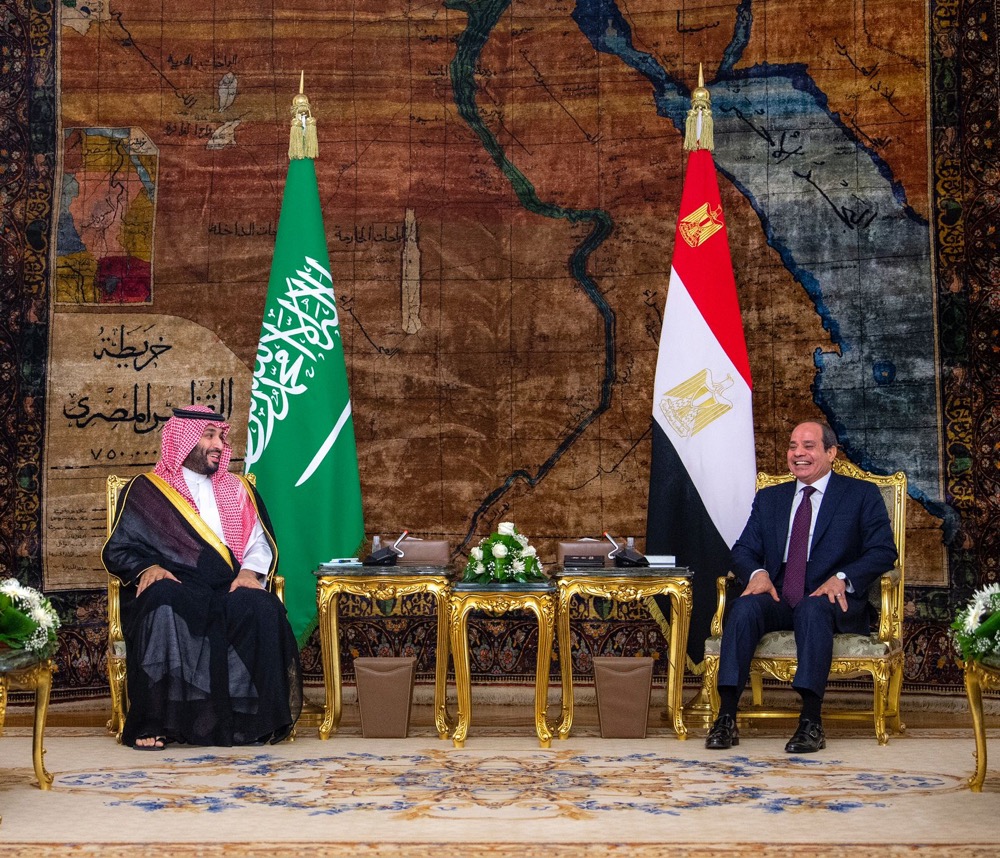
The representatives from the Kingdom included Minister of Foreign Affairs Prince Faisal bin Farhan; Minister of Energy Prince Abdulaziz bin Salman; Sports Minister Prince Abdulaziz bin Turki Al-Faisal; Minister of the National Guard Prince Abdullah bin Bandar bin Abdulaziz; Minister of Interior Prince Abdulaziz bin Saud; Minister of Investment Khalid Al-Falih; and Trade Minister Majid Al-Qasabi.
Egypt was represented by Prime Minister Mostafa Madbouly, who led the procession; Foreign Minister Sameh Shoukry; Director of the General Intelligence Directorate Abbas Kamal; Minister of Planning and Economic Development Hala Helmy El-Said; Minister of Interior Mahmoud Tawfik; Minister of Youth and Sports Ashram Sobhy; Minister of Electricity and Renewable Energy Mohammed Shaker El-Markabi; and Egypt’s ambassador to Riyadh, Ahmed Tawfik.
The visit is the crown prince’s fifth to Egypt in four years. El-Sisi and the crown prince discussed ways in which Saudi-Egyptian relations might be enhanced in various fields, along with regional and international political issues of common interest, officials said.

The two leaders reviewed the strategic bilateral relations between the two countries and the means to develop them in all fields. They also discussed issues affecting the Arab and Islamic world, along with the latest developments in the Middle East and efforts to address the issues arising from them, in particular matters related to the security and stability of the region, counterterrorism, and the coordination of efforts to enhance joint Arab action.
Bassam Radi, the spokesman for the Egyptian presidency, said the talks took place “within the framework of the deep and historical strategic partnership between Cairo and Riyadh, which aims to achieve security, stability, development and peace, with a unified vision for the benefit of the two countries, the two brotherly peoples, and the Arab and Islamic nations.”
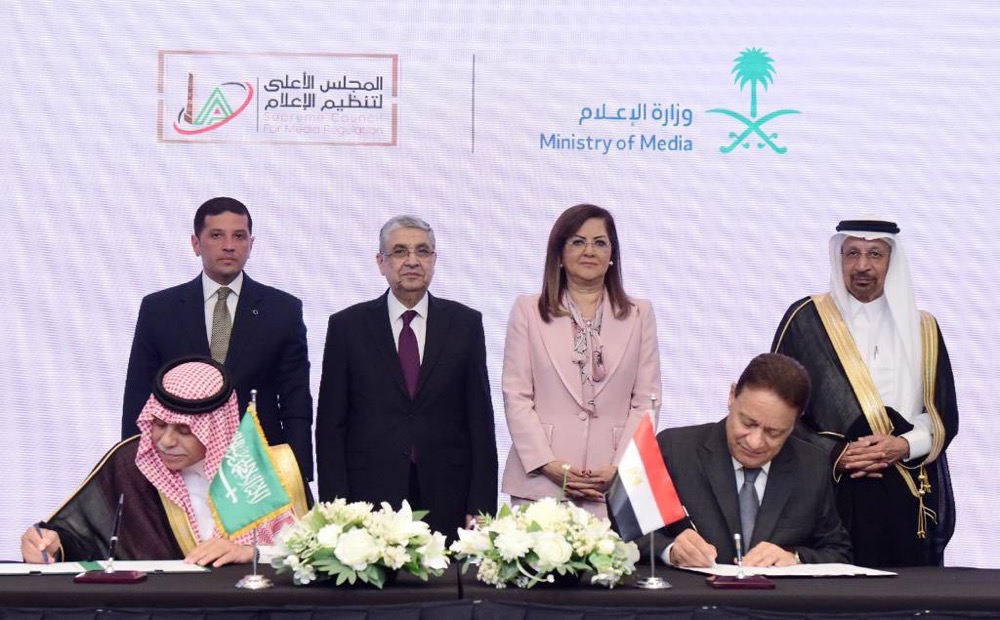
The two countries signed a number of agreements on Tuesday in various sectors, as their delegations coordinated their efforts in multiple fields with the aim of increasing their contributions to economic growth.
The 14 deals, worth $7.7 billion, that were signed reveal only part of the strength of the strategic relationship between the nations, officials said, and reflect a wider reality as Saudi investments in Egypt grow at a rapid pace. The Kingdom has quickly become the largest Arab investor in the Egyptian market and the second-largest foreign investor overall, accounting for 11 percent of total foreign investment in the country.
The crown prince sent a message of thanks to El-Sisi following his departure from Cairo en route to the Jordanian capital, Amman, where King Abdullah II of Jordan welcomed him upon arrival.
